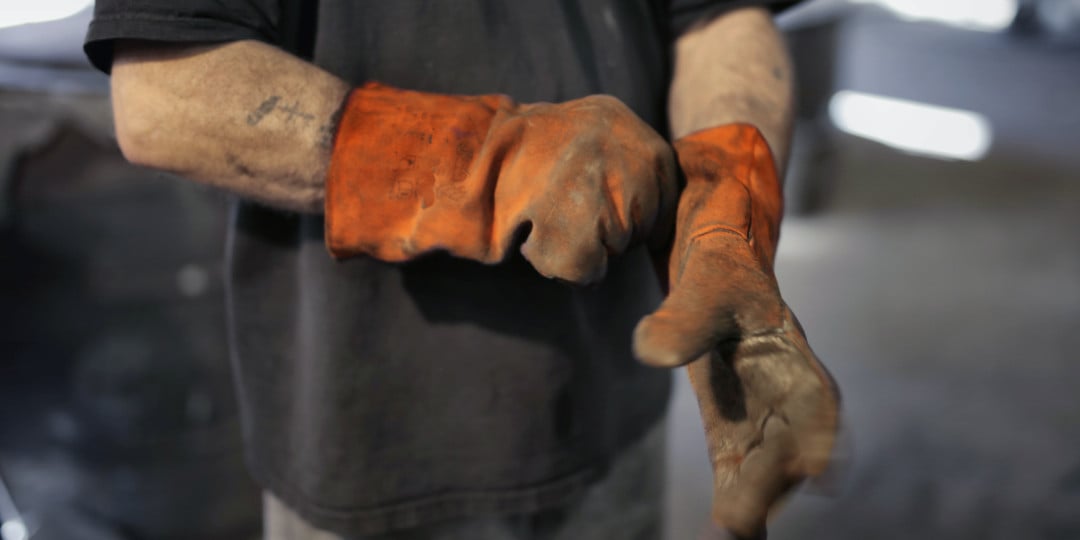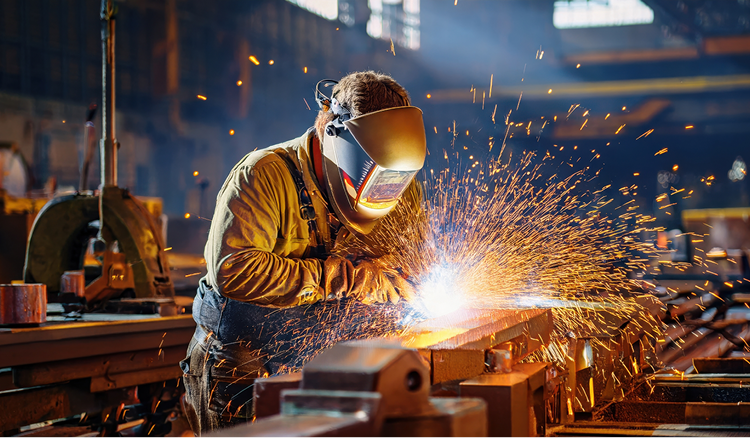Why Veryable is Only for Manufacturing and Logistics Companies
Companies often ask us why we only focus on providing our on-demand labor marketplace for the manufacturing and logistics industries in the United States. We do not operate outside of the borders of the US, and often companies operating facilities outside the US want to know why we don’t operate at those locations. Likewise, we often have happy business users who want their connections to be able to use the platform for their businesses, only to find out that we aren’t a good fit for their companies.
So, why does Veryable focus exclusively on revitalizing US manufacturing and logistics?
Maintaining focus in our niche gives us deep insights for greater impact

It might be a cliche, but focusing on doing one thing well is an advantage for our company. We do not want to spread our efforts thin because we believe in the impact we can make in manufacturing and logistics in the United States.
Maintaining this focus benefits both the businesses and the workers finding opportunities through our platform. Businesses value that we are focused on learning all we can about the specific needs of the US supply chain. Workers understand that they will find opportunities requiring a specific range of skills in these industries, making their path forward more clear as they make meaningful progress through earning and learning.
While other companies might help businesses in this space find workers, we go beyond that. Our solution is not about filling headcount; it’s about creating incremental operations capacity and flexible work opportunities. We are on a laser-focused mission to revitalize US manufacturing, one company and one worker at a time.
US manufacturing presents a great need for innovation
The US manufacturing sector and supply chain face mounting challenges as we enter year two of this new decade. A global pandemic and ensuing responses have created additional challenges beyond the underlying issues that have been creeping up on the industry for years.
The manufacturing environment is due for innovation. Legacy systems cannot keep up with the increasing demands for localization, customization, and speed that consumers want. For some companies, there’s also the pressure for greater efficiency in the use of resources as governments implement policies to reduce reliance on fossil fuels and consumers become curious about where their goods come from and how they’re made.
The workforce also needs innovation. The working population is aging out of the workforce, making knowledge transfer a key initiative. On top of that, those incoming workers want flexibility and the opportunity to develop their skills. There is also an entire segment of the workforce that has been unable to participate because of the lack of work opportunities that fit their circumstances.
There are plenty of areas to innovate in US manufacturing and logistics, and the path forward starts with solving the labor equation. Assets, flow, and materials are important to optimize, but without the right labor capacity, these improvements will fall flat in terms of realized returns to companies. There is an opportunity to benefit businesses and workers by getting the labor equation right on a national scale through grassroots innovation in this important sector.
Manufacturing and logistics are important to the US economy and national security
The importance of a nation’s ability to produce what it needs on its own soil cannot be understated. This is not a political expression; rather, it is a statement based on what has happened to nations that did not develop and maintain their own productive capacity.
Our economy and our national security depend on our ability to produce at least the basic necessities from within our own shores. We need to reduce our reliance on offshore production. We need to eliminate the trade deficit and regain the prosperity of the middle class in the process.
Our co-founder and team have considerable experience in supply chain operations
Veryable co-founder Mike Kinder spent nearly a decade at GE in operations and spent years in operations strategy consulting. He has seen firsthand the need for innovation in manufacturing and logistics through his exposure to many businesses across the supply chain.
The team at Veryable is made up of many former operations leaders, Lean practitioners, industrial engineers, and other supply chain professionals who latched onto the mission of our company. They now leverage their decades of combined experience to guide businesses in a new way of solving the labor equation. Read more on this.
Our team’s expertise in the fields of manufacturing, logistics, and operations consulting give Veryable a unique strength that businesses can leverage to amplify their results with on-demand labor.
The time is right for innovation
The supply chain is a hot topic across dinner tables in 2021 as the global supply chain remains bogged down. The news stings even worse considering that many companies typically make their big Q4 turnaround for the year. At the same time, the workforce continued to be disrupted and reshuffled in a tight labor market.
The eyes of the nation and the world are on the supply chain, and it’s up to all of us to rise to the occasion. On-demand labor can uplevel your operations by helping solve the labor equation.
Learn more about how your business can gain the flexible capacity necessary to win by reading our blog about the basics of on-demand labor.
Previous Posts
Trump 2.0 Week 12 Recap: Discussing The Reciprocal Tariff Pause, The Escalating Trade War With China, and More
The Future of Manufacturing and Logistics
Create a free business profile today to explore our platform.






